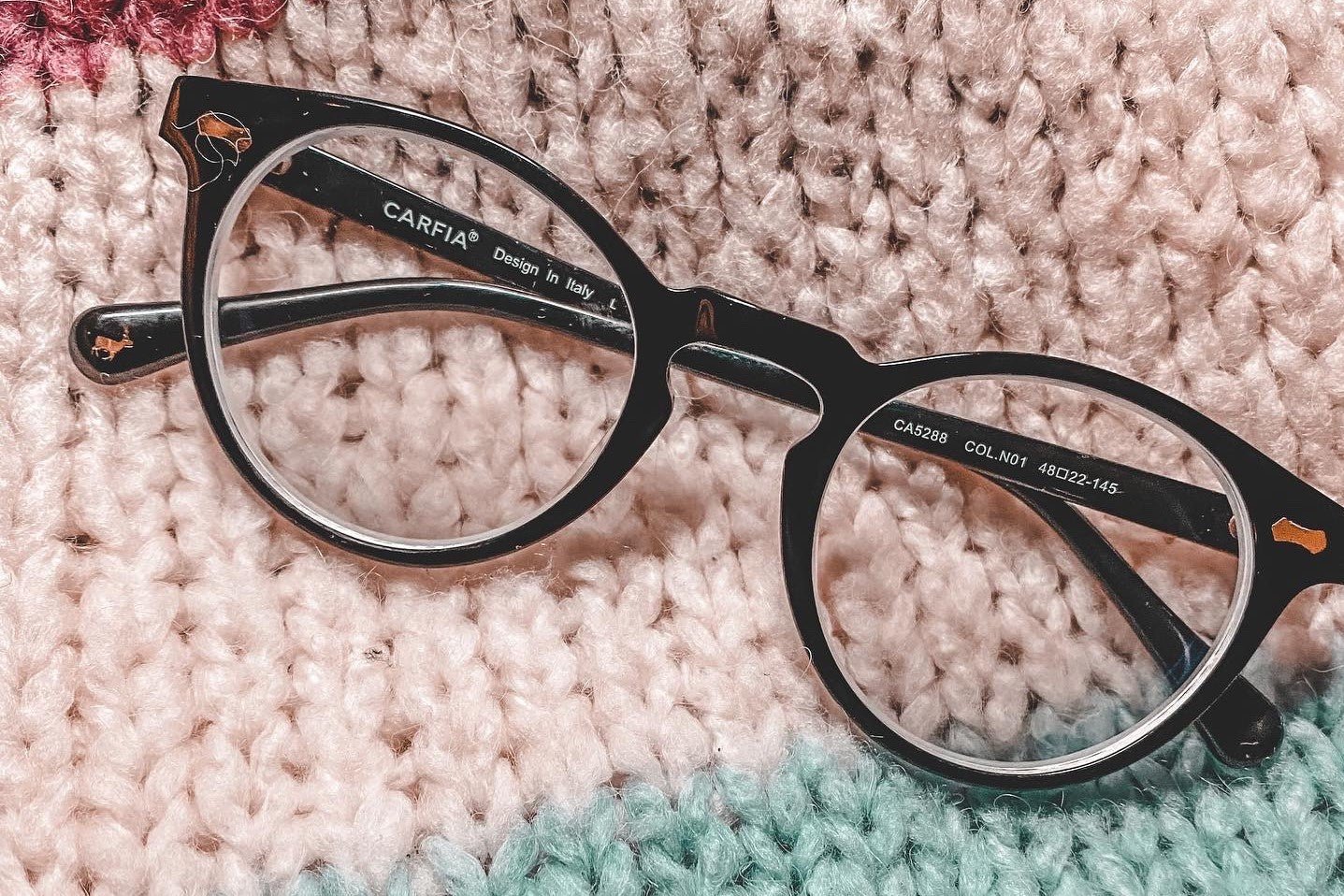When were the first glasses invented?
No one knows when the first pair of glasses were invented, but we do know that the grinding techniques for making simple magnifying glasses have been around since 1000 AD, especially in regions where glasses were already produced (including northern Italy). The earliest artwork of glasses appears in the Treviso Cathedral fresco painted by Tommaso de Modena in 1352. There is reliable evidence that eyeglasses were invented in Italy in the late 13th century. The first pair we think of as eyeglasses appeared in Italian pizza in the late 12th century and looked more like two small magnifying glasses (made of raised glass) riveted together at the top of the handle. In 1266, The English Franciscan Monk Roger Bacon wrote about the scientific principles of corrective lenses, but there is no evidence that he applied this knowledge to the manufacture of eyeglasses.
Who needs computer glasses?
Blue light radiation from computer screens and so on usually only requires a piece of fiberglass to block, usually, we just use the anti-radiation glasses. Office white-collar workers often spend more than 8 hours a day working in front of a computer, and sometimes they spend their entertainment with a computer after going home. After long, the eye often can feel dry, sour bilge, ache, shed tears even, giddy. These are all related to the blue light stimulus emitted by the screen.
How do drivers wear glasses or sunglasses better?
We should pay attention to the dim light at night on the impact of vision, At night, for the people who wear glasses, it is best not to drive, but to prevent fatigued driving. If you need to drive, you must choose clear and appropriate optical glasses. When the light is strong in the field, it is advocated to wear light-colored sunglasses with appropriate degrees to ensure driving safety. When wearing glasses to drive, for the observation of road conditions, we should focus on the use of the head movement. Do not use eyes to move, to prevent the effect of the prism, especially the patient with high myopia should pay special attention. Shaded sunglasses, coated with reflective material, block out light from above and increase horizontal and lower light, which makes it easier to see the platform. Clip-on sunglasses are suitable for people who wear glasses themselves. You can go straight with a pair of myopic sunglasses for a higher price.
Why do you need night-driving glasses?
Aging causes our pupils to become progressively smaller, so they don't dilate as quickly. A smaller pupil means less light reaches your retina, which makes it harder to see at night. The weak artificial light, and the fact that we can't see beyond these sources in the dark, exacerbate the dangers of night driving. For people wearing prescription glasses, the risk of driving at night is much greater. Driving can be stressful, especially if you have poor eyesight. This is especially true at night. If you have poor vision and drive at night, you're vulnerable to a number of potential hazards, and we're talking about prescription glasses for night driving. These glasses can play a big role in making you safer and more comfortable. They can even save your life. This is especially important as night vision decreases with age. When you drive at night, choosing the best prescription glasses for night driving can make your life easier.
Prescription glasses are more comfortable to wear than other glasses for visually impaired people. For example, there exist bulky protective glasses designed to be worn over existing eyeglasses. There are protective glasses with prescription lenses for the visually impaired, for example. You can consider wearing prescription glasses while driving at night. When driving at night with these glasses, you will feel safer and more comfortable. Even if you feel like you're a skilled, capable driver. Driving glasses can be an investment. But that being said, it's better to invest in night-driving glasses now than to pay the price later.
They can reduce glare.
They can absorb blue atmospheric scattering and provides more contrast. When performance is your top priority, the right lens tone can give you the results you want. UV rays are blocked by a special coating on the lenses. And inferior sunglasses not only cannot hold back ultraviolet rays but let lens permeable luminosity drops seriously, making pupil greens. Ultraviolet rays can shoot in large quantities instead, your eye is damaged.
Semi-rimless glasses give you a wider view than full-frame glasses.
It is believed that many people who wear semi-rimless and full glasses will have experience greatly. Because semi-rimless glasses have no frame at the bottom, our view expands as we look down, unlike full-rimmed glasses. When looking down, the line of sight is blocked by the lower half of the frame of the glasses, which is very inconvenient.











































